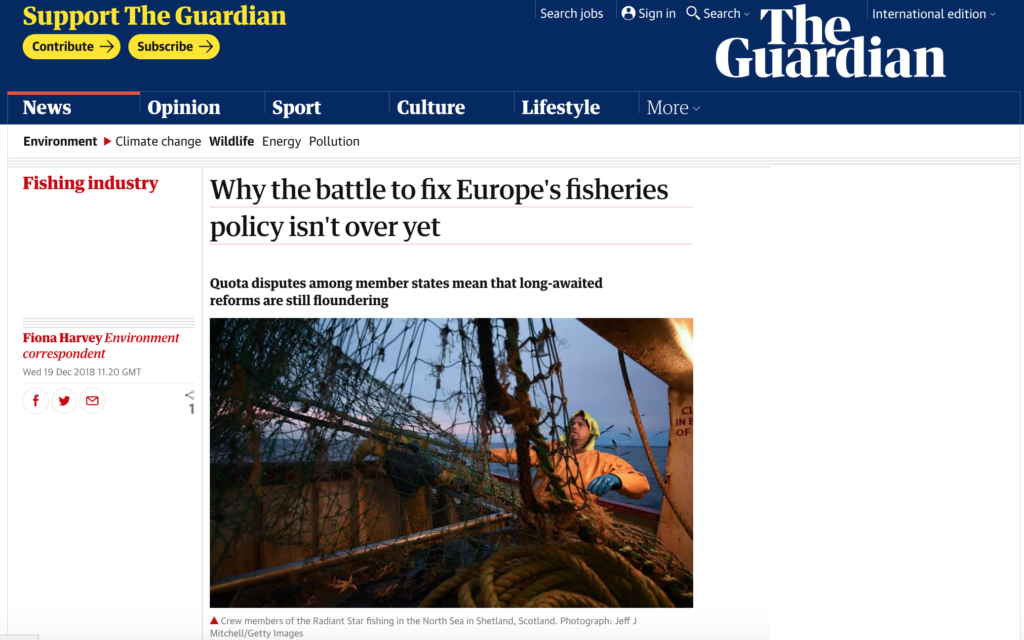Quota disputes among member states mean that long-awaited reforms are still floundering
Fiona Harvey, The Guardian, 19 December 2018: Why the battle to fix Europe’s fisheries policy isn’t over yet
Overfishing in EU waters, and the wasteful practice of discarding edible fish at sea, should come to an end from next year, as reforms to the common fisheries policy (CFP) are implemented after seven years of wrangling.
But disputes among member states over rights to dwindling fish stocks mean that key aspects of the plans to improve management of European fisheries are floundering.
From January, the landing obligation should mean that all fish netted are brought to shore instead of thrown away if they exceed a vessel’s quota. By 2020, all stocks should be subject to quotas based on scientific judgments of the maximum sustainable yield, not annual horse-trading among politicians.
…
There are solutions, such as more selective fishing gear and better technology, but the problem could also be solved by swapping quotas among member state or allowing the reallocation of a quotas among vessels within a member state. Yet ministers have been reluctant to explore these.
Rebecca Hubbard of the group Our Fish told the Guardian: “Ministers have been procrastinating and seeking exemptions, including avoiding effective monitoring and control, so unless they are willing to take tough decisions, widespread discarding is likely to continue. This would not only be a waste of a valuable public resource, but a waste of the public’s trust in decision-makers to deliver on the commitments they made in 2013. Ministers could put this right, by setting sustainable limits for all stocks and require electronic monitoring in fleets with a higher risk of discards – it’s worked in north America and Australia, so why not in the EU?”
Continue reading: Why the battle to fix Europe’s fisheries policy isn’t over yet

